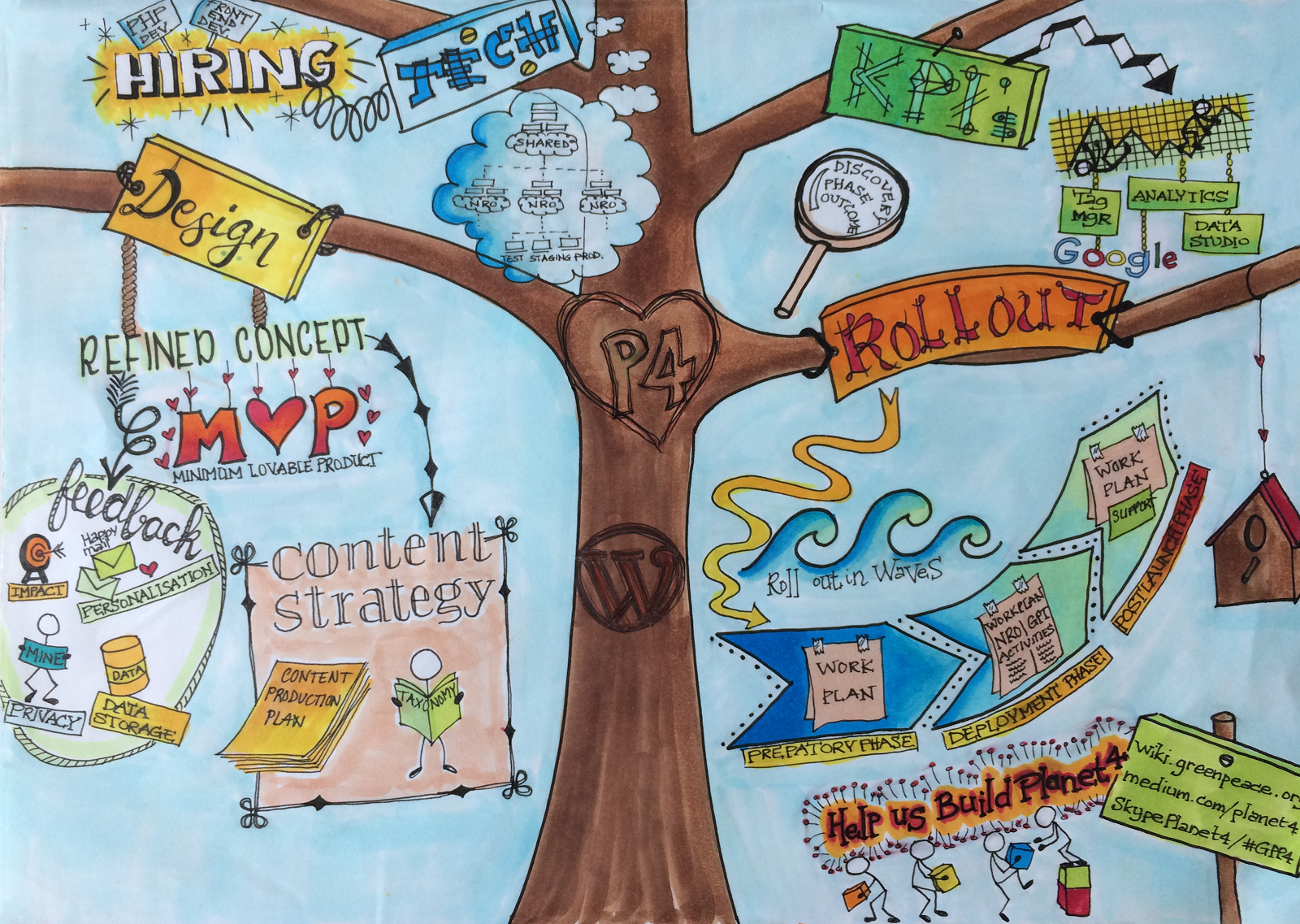Greenpeace is about to embark on a digital initiative called Planet 4 (P4 for short) - a next-generation content management system (CMS) and also the process of building it and getting to market.
In spring 2016 Greenpeace polled its community and WordPress won hands down as the technological underpinning of the future Planet 4. And what’s not to like? It’s free, user friendly and customizable. Tens of thousands of developers worldwide write new plugins and new functionalities. It has an endless library of themes and theme builders to help users design and develop a unique website. The core code is available in every major language. Queues of developers line up every few months to donate their time for the next iteration of the core code. And it has a low technical barrier to entry… so low, even I figured it out.
When you play around with WordPress for a few years, you will invariably get to know individual developers, themers, UX designers and entrepreneurs, all committed to the platform. This is one inspiring bunch. Attend one of the thousands of Wordcamps and you’ll see what I mean.
WordPressers believe that code should be available to and improvable by everyone. They believe in common ownership of that code. They believe technology should be powerful, affordable and available to anyone irrespective of financial resources. They believe the right to publish and disseminate information should not be dominated by proprietary platforms. Sound familiar?
Greenpeacers and WordPressers have so much in common. We get up every morning with visions of the world as it should be, not as it is. We see a world that should be more equitable, more inclusive and a society with a common purpose. We see a world where forces are arrayed against us but conviction that real change lies with the power of people.
We Greenpeacers have a lot to learn from the community that WordPress founder Matt Mullenweg has assembled and the true meaning of “open source”. Despite popular belief, WordPress hasn’t been solely “just a blogging platform” since version 2.7 back in 2007. Today it’s a powerful, versatile CMS. Soon it will become a technology platform sharing content and data in entirely new ways. All because the community defined the direction it should go.
Why Greenpeace and WordPress need each other

Talk to me!